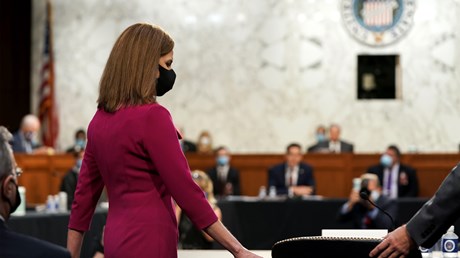When it comes to religious liberty, culture matters more than judicial rulings..

President Donald Trump’s nomination of Amy Coney Barrett to the Supreme Court was welcome news for many American evangelicals and social conservatives. Her confirmation looks likely.
In the hopes of Barrett’s supporters—and the fears of her critics—her addition to the court will dramatically alter its jurisprudence on social issues, particularly abortion. However, the reality of a 6-3 conservative court will probably be more mundane for a number of reasons, including that the most common SCOTUS voting pattern is 9-0, that Chief Justice John Roberts has adopted a strategic balancing role, and that a GOP-appointed court majority is no guarantee of conservative triumphs.
Moreover, if the rulings of the past five years are any indication, religious liberty far more than abortion is the social issue for which SCOTUS composition presently matters. But religious liberty advocates are deluding ourselves if we think the court is what matters most. Far more important is the fact that a chasm of incomprehension is widening between practicing Christians and other devoutly religious Americans on the one hand and the nominally religious and irreligious on the other. This cultural misunderstanding is politically dangerous, and adding Barrett to the Supreme Court will do nothing to halt its expansion.
Writing in his email newsletter about Christianity and masculinity in 2017, CT contributor Aaron Renn posited a three-part framework for thinking about the place of Christianity in American society. Before around 1994, he argued, we lived in a “Positive World,” where Christianity enhanced a person’s social status and breaking traditional Christian behavioral norms harmed it. Between 1994 and 2014, Renn ...
from Christianity Today Magazine https://ift.tt/2SSTbC9
No comments:
Post a Comment